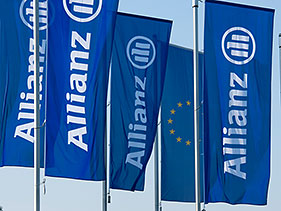The Covid-19 pandemic is one of the largest economic loss events in history for companies and insurers alike. However, it’s not only the magnitude of the impact which is unprecedented. Claims trends and risk exposures are likely to evolve in both the mid- and long-term as a result of the pandemic. With the reduction in economic activity during lockdown phases, traditional property and liability claims have been subdued, most notably in the aviation and cargo sector, but also in many other industries with fewer accidents at work, on the roads and in public spaces, according to a new report Covid-19 – Changing Claims Patterns from Allianz Global Corporate & Specialty (AGCS).
“The coronavirus outbreak has reduced risk in some areas while, at the same time, changing and heightening it in others. The wider changes in society and industry brought about and accelerated by the pandemic are likely to have a long-term impact on claims patterns and loss trends in the corporate insurance sector,” says AGCS Chief Claims Officer Thomas Sepp in an interview on AGCS’ website. “The growing reliance on technology, shift to remote working, reduction in air travel, expansion of green energy and infrastructure and a rethinking of global supply chains will all shape future loss trends for companies and their insurers.”
Estimates vary, but the insurance industry is currently expected to pay claims related to the pandemic of as much as 110 billion U.S. dollars in 2020 according to Lloyd’s. AGCS alone has reserved about 488 million euros (571 million U.S. dollars) for expected Covid-19 related claims, especially for the cancellation of live events and the disruption of movie or film productions in the entertainment industry.



